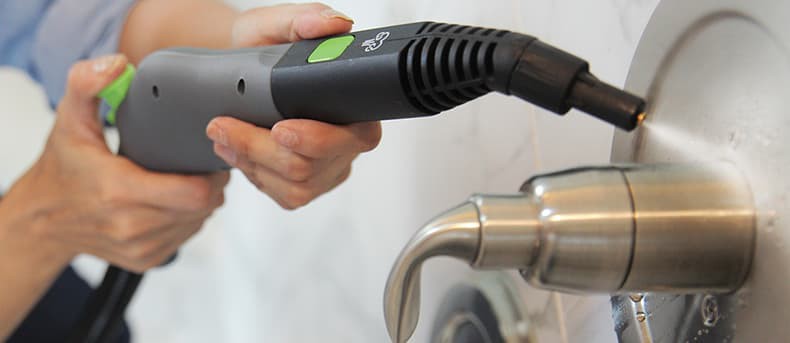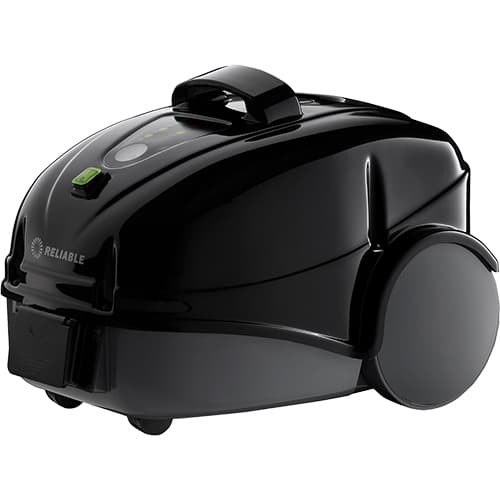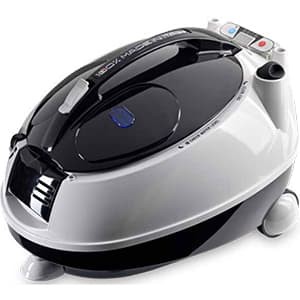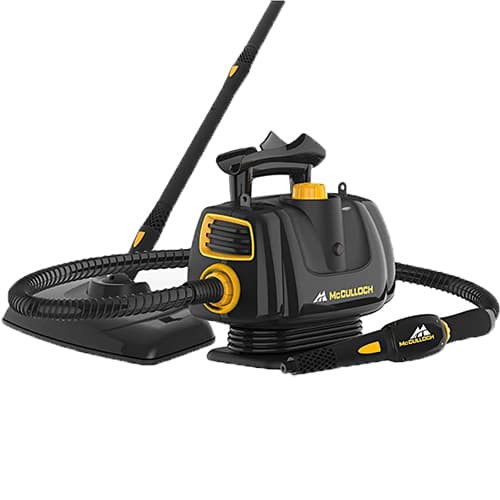Fact: High heat kills most bacteria and viruses. Even extremely hot water with a temperature of greater than 150 degrees F can kill some bacteria. Cleaning surfaces in your home using a steam cleaner will effectively sanitize them, eliminating or reducing their effects.
- How Does Steam Cleaning Kill Bacteria & Viruses?
- Recommended Steam Cleaners
- What Can You Clean with a Steam Cleaner?
- What Surfaces Cannot Be Steam Cleaned?
How Does Steam Cleaning Kill Bacteria and Viruses?
Steam cleaners are machines that are equipped with an internal boiler that brings ordinary tap water to a minimum of 212 degrees F, creating steam. This steam is dispensed under pressure through a hose with a nozzle. A variety of additional tools can be added to the nozzle for cleaning specific surfaces like glass, fixtures, grilles, and sealed natural surfaces.
Depending on the steam cleaner, boilers can reach temperatures up to 390 degrees F, more than enough to kill surface microbes. These high-temperature units create what is known as dry steam (vapor), which leaves little to no moisture on surfaces.
Recommended Steam Cleaners
These steam cleaners have some of the highest boiler temperatures for eliminating viruses and bacteria from almost any surface in your home.
Reliable Brio PRO EP1000 Steam Cleaner
With an included accessory kit and powerful performance, the Reliable EnviroMate PRO EP1000 Steam Cleaner makes cleaning floors, counters, and more easy.
- Steam Temperature: 250º F
- Operating Pressure: 87 psi
- Pre-Heat Time: 10 minutes
- 5 Stars
Vapor Clean Pro7 Home Pro Steam Cleaner
Combining bagless water filtration plus a steam barrier to capture particulates with the vacuum function, this steam cleaner registers 300 degrees F at the tip for true disinfecting.
- Steam Temperature: 312º F
- Operating Pressure: 101.526 psi
- Pre-Heat Time: 10 minutes
- 3.5 Stars
McCullough MC1270 Portable Power Steam Cleaner
The McCullough MC 1270 portable power steam cleaner is designed to clean & sanitize your entire home. Includes an array of cleaning accessories and tools to complete any job.
- Steam Temperature: 212º F
- Pre-Heat Time: 2-3 minutes
What Can You Clean with a Steam Cleaner?
Steam cleaners are perfect for almost any hard surface, such as countertops, bathroom fixtures, tubs, tile, glass, and flooring. This includes any sealed floor, including vinyl, laminate, hardwood, tile, and stone.
With the correct accessory tool, steam cleaners can also be used on soft surfaces like mattresses, upholstered furniture, curtains, carpeting, and rugs.
What Surfaces Cannot Be Steam Cleaned?
High-pressure and temperature steam should not be used to clean unsealed surfaces. This can include granite, marble, or stone countertops, hardwood floors, and any material that specifically states that steam cleaning is NOT recommended. Check out our blog post about what not to clean with a steam cleaner.
In Summary
Pressurized steam (at least 212 degrees F) can be used to eliminate viruses and bacteria from surfaces, effectively sanitizing them in minutes. Super-heated dry vapor accomplishes this with less surface moisture and faster cleaning times.
If you have questions about how cleaning with steam can kill viruses, contact one of our product experts at 1-800-934-9194.





